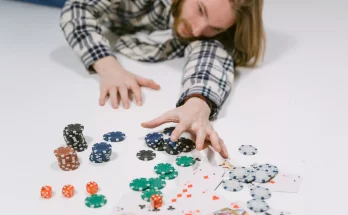The cognitive skills are the phenomenal information processing capabilities of your brain. They tend to work in the background without your notice, running daily activities without your knowledge.
Poker gives your mind a hard workout. Here’s how: read this article about how poker can improve your thinking and decision-making skills.
Analytical Mindset
Poker is a difficult and detailed game that requires you to think hard about the card values and betting patterns and what they mean. Pro poker players have developed this art with years of practice to ensure they can make good decisions even under pressure and difficult situations.
Poker provides the perfect place to develop analytical mindset habits which can be applied to a range of business activities — from data analytics and strategic decisions, to problems solving and business development. Informed knowledge of these issues is critical for effective business strategy development and execution and organisational success.
Poker also teaches analytical skills, and the ability to control one’s emotions in times of stress – a life skill and an essential component of brain health and longevity. Furthermore, learning logic deduction through poker builds spatial memory – an essential part of virtual navigation (Leonard & Williams 2015)! Alooba offers video responses to enable this by measuring Analytical Mindset abilities of candidates through an end-to-end candidate assessment tool.
Decision-Making
Poker is a game of chance that forces players to evaluate scenarios and make choices based on facts. It’s useful for decision making in financial and professional matters and when leveraged through Four Step Process, decisions are logic-based and soul-centered.
The mental exercise will also give you more analytical tools, such as how to analyze probabilities, EV, and the range of your opponent. Further, it’s an intellectual exercise that forecasts future moves and projects probable outcomes by probability.
Poker pushes you to be an effective reader of opponents and social signals – two skills that can benefit you professionally and personally, as you develop more social intelligence. Researchers also found that poker increases your capacity for subtle cues such as facial expressions and body language.
Strategy
Poker entails learning game theory best strategy and opponent’s nature, but you also have to have mental toughness and emotional regulation to be a good poker player.
Not only are facial expressions and body movements of your opponents a key part of poker, but knowing how to read social signals will make life with others easier.
Poker is said to rewire the brain by invoking new neural networks and teaching patience and focus – skills we all need in life and business. The best players understand when they should take a break and play on the next hand without getting lost and making terrible decisions that cost them a boatload of money.
Problem-Solving
It can train your critical thinking by making constant decisions in poker. Every fold, call and raise asks you to weigh the odds and rewards, interpret your opponents and act with scant information – all hallmarks of critical thinking that can be applied directly to real-world problems.
Poker teaches players to read and interpret body language, improving their capacity to discern the feelings and personality traits of others – an art form you can use professionally and at home.
Poker, last but not least, can aid memory and spatial reasoning. The process of thinking stimulates the part of your brain known as the neocortex, involved in memory and perception, emotional regulation and stress management – all of which promote good health. Poker’s rise in schools is part of a growing movement toward playful learning environments focused on interaction and thinking; its mix of strategy, psychology and play provides a model of real-world problem-solving.




